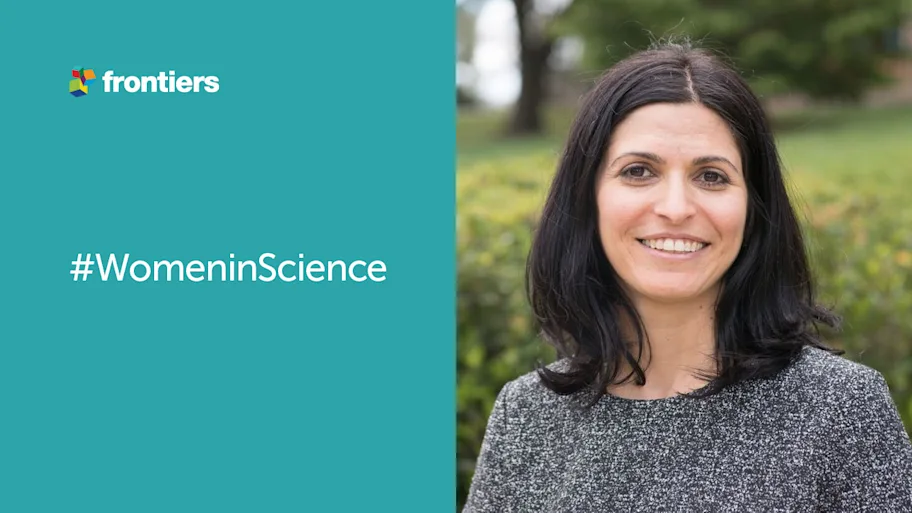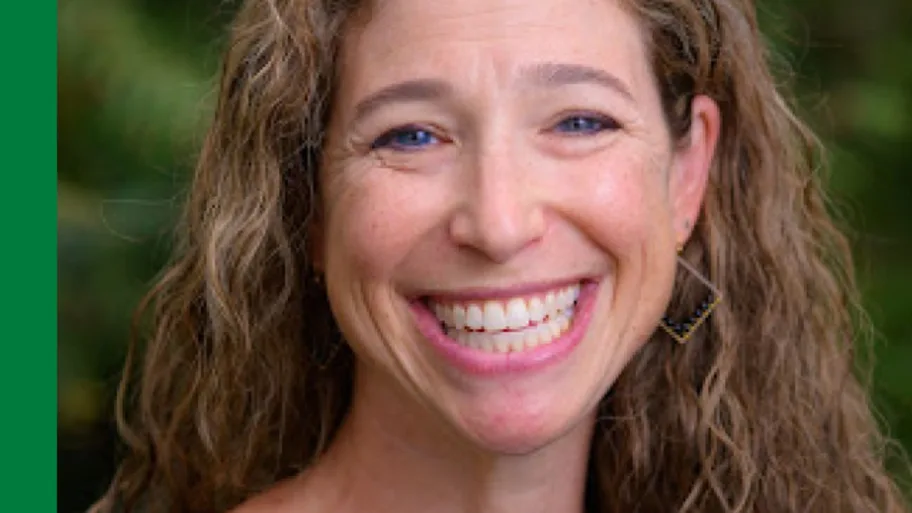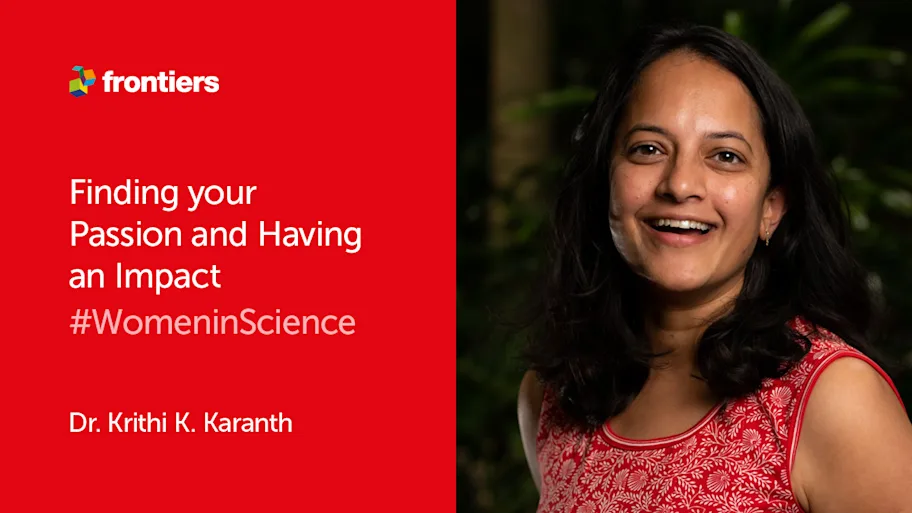
- Science news
- Frontiers news
- Dr. Jamie Peyton: “Think Outside the Box, or Create a New One” #WomeninScience
Dr. Jamie Peyton: “Think Outside the Box, or Create a New One” #WomeninScience
Last month, we launched the #WomeninScience blog series to coincide with the International Day of Women and Girls in Science . Through Q&A-style interviews with inspiring female researchers from the Frontiers community, we learn about their careers, roles, and views on science. This month, Emma Phipps, journal specialist for Frontiers in Veterinary Science and Frontiers in Conservation Science, talks to Dr. Jamie Peyton.

Dr. Peyton is a veterinarian and the Chief of Integrative Medicine Service at the University of California (Davis) School of Veterinary Medicine. She is also the Associate Director for the Centre of Advancing Pain Relief (also at UC Davis) and is one of the leads of the Wildlife Disaster Network, which aims to mobilize the people and resources needed to help wildlife in the event of wildfires or other disasters. We discuss the importance of finding your passion, turning negatives into positives, and having an open-mind.
Did you always want to go into Veterinary Science?
"This is where the cliché comes in! I’ve always loved animals. When I was small my parents really weren’t animal people so it’s funny that I caught the bug. I love looking into things and discovering and learning - and pretty young I decided that I wanted to go into veterinary medicine and veterinary science. I really love taking care of animals and working with people, investigating, and finding solutions. I think that’s where science, whether it is in veterinary science or another area, gets you excited as you find that passion for investigating and finding solutions. That has always driven me and still does."
What would you say are your biggest achievements, in your career or otherwise?
"I think achievements come in different levels. One of the best achievements for me is just the everyday. When I see animals getting better and clients being happy with the quality of their lives. Most recently, I was really proud to be part of a team that was helping with the disaster response for all different animals, large and small, as well as our wildlife. As far as awards, last year I received the Chancellor’s Innovation Award which was really exciting and sort of like, oh, cool!. But I think the feeling of achievement is something you have to feel everyday knowing you are doing good for your community, and in your job you are finding satisfaction and passion, so there are definitely different levels."
What challenges have you faced in your career, and how have you overcome them?
"I think science is one of those things where you get to have that innovative thinking; 'I’m at the forefront' - and you’re trying to put out these big ideas. But I think one challenge for me is that sometimes new ideas are scary for people. I think that isn't just from being a woman, but in general. For anyone who thinks a little bit outside the box, finding resistance to bringing ideas to the table is one of the biggest challenges. That’s where you really have to find the confidence in yourself to say, _you know what? I still think this is a good ide_a. It might be crazy, but you just have to have confidence and try it and learn from it."
"I think in veterinary science in particular it’s becoming much more dominated by women percentage-wise, but that doesn’t apply as much to the research field specifically where we still have a much higher percentage of men. I always feel quite proud when I go into a room to do a research lecture and I’m the only woman there! I think it is really important for those of us that are women in this field to say to people who are coming into the field (especially other woman): have strength, you can do this, there are many opportunities. You just have to find what your passion is and the questions that you want to ask. Don’t be afraid to ask them no matter what people tell you. I always call them the naysayers; the people who think your ideas are not worth it or terrible. I find inspiration in those people because when they tell me I can’t do something it really does make me think, well, of course I can. I try to take that negativity and make it positive, and I think that’s really the key in any science field. You will have bad days and you will have that negativity, and you just have to find it in yourself to change that negativity to positivity and go towards that passion and answer the questions.
You were recently awarded the 2019 UC Davis Chancellor’s Innovation Award for your ground-breaking use of tilapia (a species of fish) skin to treat animals with burns. Did you receive a lot of pushback on that idea?
"I laugh about it now because it has been pretty well accepted at this point, but in the beginning when I first suggested the idea there were a lot of raised eyebrows. I think it was hitting a challenge that made me realize that what we had in place wasn’t going to work, and those are the patients that really push you to find a solution."

Dr. Peyton was awarded the 2019 UC Davis Chancellor's Innovation Award for her work on tilapia skin as a treatment for burns.
"I always say think outside of the box or create a new box. When I first started telling people there was a lot of doubt and a lot of well you can’t do that, so again I took that and I said you know what, I don’t have a choice and I’m going to make it work. Since then, we’ve shown the benefit through our research and everyone’s caught on. There’s always that in-between time where you have to make sure that you have the confidence that you are doing the right thing. And sometimes you aren't, but it’s the trying that’s really the most important. Trying to find the solution, trying to make things better, and people change, things catch on. I’ve always been that person who maybe thinks a little differently about a challenge, so you have to really push yourselves against those naysayers to make things happen. The fish skin was definitely one of those!"
Given the emotional nature of your work do you ever have trouble balancing home and work life?
"Yes! I think the work and home balance is an interesting concept because it always seems like this mystery, but really it’s a challenge we face each day, especially when you’re passionate about what you do in your work. It really does take effort to find that separation where you don’t take all that emotion with you. Sometimes it’s difficult for example when we do disaster relief. I always get the question, how do you deal with seeing all of these severely injured animals and the people that are affected? I think you learn that in the moment you have a job to do so you do it, but you have to find a time when you have that let down where you can come home and have a cry for a little bit then have a hot cocoa! You need to have that relief, leave it, then you have to focus on the rest of your life and your family.
"I do think that it’s something we all have to work on every day and I definitely struggle with it. There are so many things to do and as someone who is interested in science and also the service aspect of science, using that science to help your community, it is really difficult to separate. I would be lying if I said I didn’t struggle with it.
"Things that help me are when you come home to your family you set aside that quality time. My husband and I also run an animal sanctuary at our farm so I have a whole other side that I have to focus on - my other job - but having that really centers me. It’s something you need to do for your home and your family, and those animals are my family! It’s also just really trying to spend time on self-care which is really hard for us - both as professionals and as women - finding that time is really difficult but I think it’s making time for the little things like having a hot shower with aromatherapy, taking a walk, things like that."
What would your advice be to a young female student starting vet school now?
"I think I would say the most important thing is to have an open-mind. I always tell my students and my residents, have an open-mind and a skeptical eye. If you aren't open to new ideas and new things you might miss out on something, and who knows when that door is going to open. Things that you don’t expect to happen, do, and it can lead you down an amazing journey. The skeptical eye is making sure you learn about something and that you investigate it, so when you are open to those ideas, the possibilities are endless. Then the key after that is finding your passion. And that’s not going to be every single day, but it’s something that really drives you because you want to enjoy what you do, you want to come to work and be inspired, you want to find solutions, so it really is about being open to all those things, and then figuring out what is it that you love, what do you like to investigate, then go for it, don’t be afraid.
"People have a lot of hesitation, they think they can’t do it; a lot of us in the science field suffer from imposter syndrome, how can we be here? how can we be doing this? You really have to push yourselves to get over that and find what you love and what inspires you to keep thinking every day."






